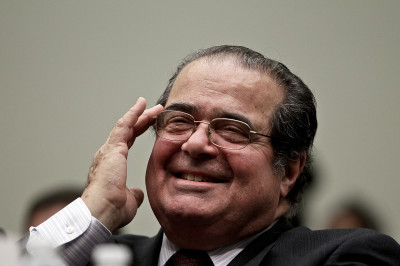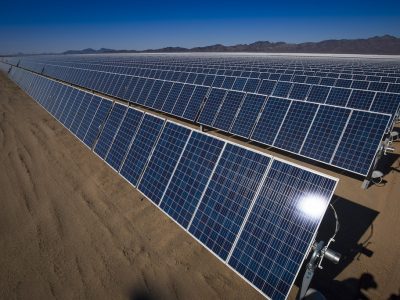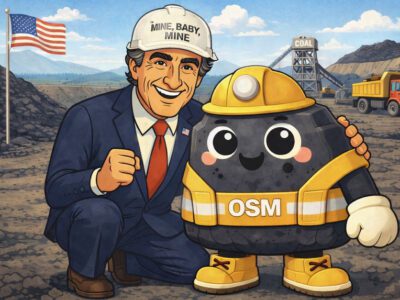The Decision to Halt the Implementation of the Clean Power Plan is Outrageous
And Inconsistent with the Law
 As I wrote earlier today, there is nothing good to be said about the U.S. Supreme Court decision today that halted the implementation of the President’s Clean Power Plan. The decision is a huge blow to the President’s climate agenda, it’s a setback for the Paris Agreement and it is a bad sign that the Court may ultimately strike the plan down. But I should also emphasize that the decision is way outside the bounds of normal Supreme Court practice and is, to put it bluntly, shocking. As the Solicitor General of the United States argued in his brief opposing the motion to “stay” the plan (again, “stay” means freezing the plan’s implementation):
As I wrote earlier today, there is nothing good to be said about the U.S. Supreme Court decision today that halted the implementation of the President’s Clean Power Plan. The decision is a huge blow to the President’s climate agenda, it’s a setback for the Paris Agreement and it is a bad sign that the Court may ultimately strike the plan down. But I should also emphasize that the decision is way outside the bounds of normal Supreme Court practice and is, to put it bluntly, shocking. As the Solicitor General of the United States argued in his brief opposing the motion to “stay” the plan (again, “stay” means freezing the plan’s implementation):
Applicants identify no case in which this Court has granted a stay of a generally-applicable regulation pending initial judicial review in the court of appeals.
In other words, the Court has never done what it did today: stop a regulation from going into effect before any court had determined its legality. Moreover, the Court did so even though the states and industry groups challenging the regulation did not have a strong case. Here’s why. In order to get a regulation’s implementation halted, opponents had to meet several criteria. First, they had to show that they have a strong chance of winning on the merits of the case. Yet EPA issued the Clean Power Plan because it is legally required to regulate power plant emissions as the result of a decision issued by the United States Supreme Court! EPA, in other words, followed the Court’s own order in issuing the CPP. Whether the way EPA chose to implement the Supreme Court ruling is what is at stake in this litigation. The case is a complicated one, involving issues of statutory interpretation that will require careful court consideration. But the Court’s determination in issuing the stay that opponents of the CPP have a “strong” case is simply wrong.
Second, the rule’s opponents also had to show that they would suffer “irreparable harm” if they had to comply with the regulation. The question of irreparable harm is an especially puzzling one. EPA went out of its way to issue a rule that would be implemented very slowly. Under the rule, states have until September, 2016 to show how they will comply with it but can get 2 year extensions, to a date far beyond any expected ruling from the Court. But even more important, the electric power sector faces no emissions cuts until 2022! Any court decision, including appeals to the highest Court, will be resolved far earlier that 2022 — indeed the D.C. Circuit, which is the court that will first hear the Clean Power Plan, has expedited review and will hear oral arguments this June. So where is the irreparable harm? At most states and the power sector have to begin considering how they will comply, with no concrete action due for years.
And finally, Clean Power Plant opponents had to show the Court that issuing a stay would neither hurt other parties or the public interest. Climate change is the most pressing environmental problem the world faces. More than 190 countries came together in Paris in December and agreed to individual country commitments to reduce global greenhouse gas emissions and to limit temperature increases to under 2 degrees C. The United States was a leader in these efforts and the Paris Agreement has been hailed as a remarkable accomplishment. Central to the U.S. commitment as part of the Paris Agreement is the Clean Power Plan. Yet five members of the U.S. Supreme Court decided that the public interest is not harmed by halting the implementation of the most significant component of the U.S. plan even when U.S. leadership is crucial to global progress in beginning to halt potentially catastrophic warming. The Court’s determination that the public interest will not be harmed by a stay is just plain wrong. For all of these reasons, the D.C. Circuit refused to stay the plan, a sensible and predictable ruling.
The Supreme Court today stepped in to reverse the Court of Appeal and to issue an audacious ruling that is unprecedented and wrong. Today is a bad day for the fate of the Clean Power Plan but it is more than that. It is a bad and sad day for judicial integrity and restraint.
Reader Comments
8 Replies to “The Decision to Halt the Implementation of the Clean Power Plan is Outrageous”
Comments are closed.







I share your dismay. I’d add that this order violates the policies behind the final order doctrine, which generally prevents appellate courts from reviewing collateral orders before final judgment. The statutory articulation of the doctrine focuses on lower appellate courts, but its policies have usually guided Supreme Court review, and routine rejection, of collateral order review as well. I consider this a fairly extreme example of judicial activism and it suggests a loss of a judicial perspective on politically controversial matters.
Ann said;
“…..Climate change is the most pressing environmental problem the world faces…..”
Dear Ann,
You statement is incorrect. There are pressing environmental problems which are much more serious than dubious climate change, especially among poor people around the world. Examples include unsafe drinking water, unsanitary living conditions, contaminated food, hazardous waste, communicable diseases, air pollution, etc. These are real environmental problems that cause serious health effects and infant mortality, and there are proven technologies and methods for addressing these problems. It is far more righteous and morally compelling to focus our attention on real environmental problems that can be remedied instead of rhetorical hysteria that only serves political objectives.
You miss the point. This article is not meant to argue whether or not climate change is a pressing issue, that is settled science (http://climate.nasa.gov/scientific-consensus/) that the Court ignored. Given that, and the fact that none of the other three prongs of the four-pronged test were satisfied, this ruling indicates that the Supreme Court is not as impartial as we hope. The reason your comment misses the point is that even if you choose to ignore the science, the test is still not even close to satisfied. I don’t disagree that other important environmental problems exist, but the point of this article is to highlight the unprecedented action that seems to be nothing more than judicial activism.
I also want to add as a comment to the article that I’m shocked the Supreme Court was willing to set such an extreme precedent. It will be interesting to see how many parties in other administrative cases attempt to go this route… given the very liberal application of the requirements for a stay…
“…….The Supreme Court’s decision to slam the brakes on President Barack Obama’s most important climate regulation had an immediate impact at home and abroad Wednesday, prompting several states to halt their carbon-cutting efforts while sowing doubts internationally about the United States’ ability to meet its promises.
Just two months after cinching a historic climate deal in Paris, the Obama administration is in damage-control mode thanks to the justices’ surprise 5-4 action Tuesday. The White House tried to downplay the effect of the ruling — but even some big supporters of Obama’s climate efforts said its impact could be devastating.
“This arbitrary roadblock does incalculable damage and undermines America’s climate leadership,” California Gov. Jerry Brown said in a statement.
Brown, whose state previously implemented a cap-and-trade system to reduce greenhouse gas pollution, has already vowed to keep up California’s climate efforts. But leaders of other states said Wednesday that they are halting work on complying with the EPA’s climate regulation for power plants until the Supreme Court makes a final ruling, which almost certainly won’t happen until after Obama leaves the White House……..”
http://www.politico.com/story/2016/02/climate-ruling-fallout-barack-obama-219099#ixzz3zoEqlhRr
Thanks for your legal commentary on the Supreme Courts recent action. I am a scientist and professor, so I can’t speak too much on legal aspects of the case. However, I have to say that this action really reduces the credibility of the Supreme Court in my view.
Nobel Prize Winner to Obama – You Are Wrong on Climate Change:
Nobel Laureate Ivar Giaever told President Obama, whom he had endorsed for President in 2008, that he has it all wrong about climate change. It’s not mankind’s fault at all, but a normal process with little negative impact. The scientist cited statistics which showed that global temperatures have been relatively stable, climate change will take care of itself. Besides, it’s very difficult to measure the entire earth’s temperature with such precision. And his most telling statement?
“Global warming really has become a new religion. Because you can’t discuss it—it’s not proper.”
http://www.craighuey.com/nobel_prize_winner_to_obama_you_are_wrong_on_climate_change
BQRQ, Please get back under your bridge and stay there. It’s obvious that you are a troll. See http://www.skepticalscience.com.
FUBQRQ said;
“….Please get back under your bridge and stay there…..”
Dear FUBQRQ,
I understand your point and politely request a little forbearance. This has been a lengthy and difficult battle, so naturally we are excited about our victory in the Supreme Court.
Have a good day, peace be with you and your colleagues.
Sincerely,
bqrq